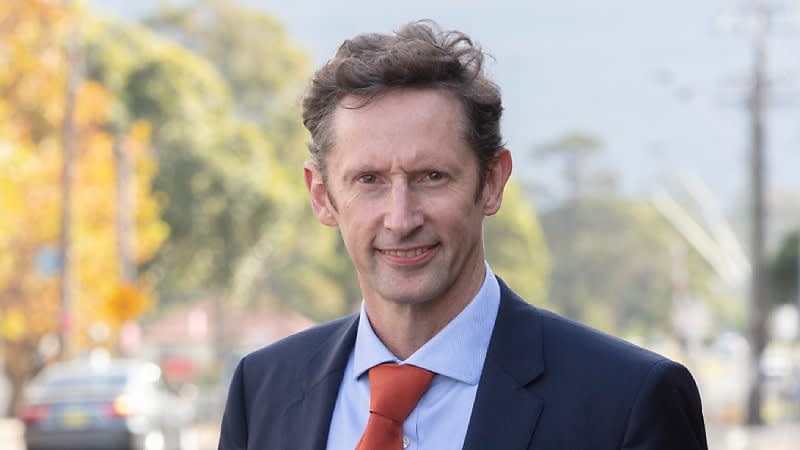Government to examine taxation issues in super
The government plans to review tax concessions for high balance super funds once an objective for superannuation has been set.
Speaking at an event in Sydney this week, Minister for Financial Services Stephen Jones said the concessional taxation of super had been a “lightning rod for discussion” in the lead up to the October budget.
“When I see the size of some fund balances I am not surprised. For example, we have 32 SMSFs with more than $100 million in assets. The largest SMSF has $400 million in assets,” said Mr Jones at the Australian Financial Review Super & Wealth Summit.
“Now, if the objective of superannuation is to provide a tax preferred means for estate planning, then you could say it has done its job pretty well. Don’t get me wrong, the government celebrates success but the concessional taxation of funds like these has a real cost to the budget.”
Mr Jones said that estimates from Mercer have shown that the tax concessions on a single $10 million fund could support three full age pensions.
“[However], I want to state quite clearly that we can’t put the cart before the horse. We will consult widely to inform a common agreed objective for superannuation.”
“With an objective that is settled, we can then talk sensibly about these taxation issues, including the taxation of high balance superannuation funds.”
Those who support the status quo, said Mr Jones, will need to demonstrate how concessional tax rates or taxational arrangements for high balance super funds meet the common objective for super that has been agreed on.
“Those who argue for a change will also need to show that that approach also meets the objective. The millions of fund members watching and participating in the conversation will know it’s framed around their interests, and their dignity in retirement and the common agreed objective,” he said.
“By having this national conversation, [means that] government now and into the future will be held accountable for the stewardship of our system for the next 30 years and beyond.”
While the SMSF Association has strongly advocated for the objective and role of superannuation to be enshrined in legislation, it has previously flagged concerns about the introduction of a $5 million cap.
“These balances are a legacy issue with the 2017 changes putting clear limits on contributions to superannuation funds and on amounts that can be held in the tax-free retirement phase,” SMSF Association chief executive John Maroney said in a statement earlier this year.
While Mr Maroney acknowledged that the association examined the issue of extremely large balances in the Retirement Income Review, it never recommended drawing a specific line.
“It’s our position that any proposal to restrict retention of extremely large balances in superannuation needs to be handled carefully to ensure that any rule changes allow adequate time to manage the restructuring that would be involved, especially where large illiquid assets are involved,” said Mr Maroney.
The proposal to implement a $5 million cap on super balances which would impact around 11,000 members is supported by a number of groups in the super industry including ASFA.
Last month, Chartered Accountants Australia and New Zealand (CA ANZ) superannuation and financial services leader Tony Negline said if the government proceeds with the $5 million cap, there will be a number of issues for it to work through.
Mr Negline questioned whether these members will be able to add more into super in situations where there has been negative fluctuations in the market.
“If I have $5.1 million in my super account and I all of a sudden find that through market fluctuations that it’s now down to $4.9 million, can I then make contributions?” he questioned.
 The idea behind why we have super was to lessen the burden on the Government to fund peoples retirement through the Social system of old age pensions. There is nothing wrong with the policy. If concessions did not exists then there would be no monetary benefits in putting money away in super inorder to fund your own retirement and not be a burden on the Government's budget. Like others have said, eventually the tax will come back to the Government at a point (sadly) when the members of those large SMSFs passover, and their benefits are paid out to the deceased's family members who no doubt would not be classed as financial dependents on the deceased.0
The idea behind why we have super was to lessen the burden on the Government to fund peoples retirement through the Social system of old age pensions. There is nothing wrong with the policy. If concessions did not exists then there would be no monetary benefits in putting money away in super inorder to fund your own retirement and not be a burden on the Government's budget. Like others have said, eventually the tax will come back to the Government at a point (sadly) when the members of those large SMSFs passover, and their benefits are paid out to the deceased's family members who no doubt would not be classed as financial dependents on the deceased.0 Every superannuation account holder accesses exactly the same tax concession, regardless of their account balance.
Every superannuation account holder accesses exactly the same tax concession, regardless of their account balance.
Just because one person receives a higher benefit in dollar terms than another (by virtue of the fact they have a higher balance) doesn't make it unfair, inequitable or bad policy.
We constantly hear the same tired old arguments from high-taxing governments determined to justify wringing yet more blood from the small group who supports our tax system.
Deficits are a result of over-spending, not under-taxing, yet we never hear any politician promise to address that side of the equation.2 Imagine what the ultimate death benefits tax will be on the $400m super balance? A small, $1.7m can stay when (if) there is a remaining spouse. The rest - $398,300,000 will leave super. Best case scenario, into the hands of a tax dependant. 12 months later, the income from the investment is taxed at what is likely to be more than 15%. Worst case and the adult children receive all the super, I would say there will be a reason chunk subject to the 15% death benefit tax and thereafter annual income tax on the invested capital.
Imagine what the ultimate death benefits tax will be on the $400m super balance? A small, $1.7m can stay when (if) there is a remaining spouse. The rest - $398,300,000 will leave super. Best case scenario, into the hands of a tax dependant. 12 months later, the income from the investment is taxed at what is likely to be more than 15%. Worst case and the adult children receive all the super, I would say there will be a reason chunk subject to the 15% death benefit tax and thereafter annual income tax on the invested capital.
Unfortunately, the "today" view of super has always prevailed rather than fitting policy with its long-term nature. It is indeed a long-term investment (firstly) and over the long term (30 years now), people have used the opportunity to deploy capital into the environment. Over that time the rules have changed extensively with each administration keen to make its mark. The 2007 seismic shift was given 10 years before it reverted to the current. We are only 5 years in, and it seems that it still isn't good enough either. The ALP likes to spend up and super will be their money tree.
At least we will get some entertainment watching the weasel words around how the government will be able to bolt on its election commitment around social housing to "the purpose of super". The industry funds have already won this one by referring to the requirement for them to act in the best financial interest of the members. A guarantee that public money will be a part of the offer.1 I was taught by my tax lecturer (who worked at ATO) that treasury never liked super because they saw it as a loss of revenue. So they are probably annoyed that tax payers have found ways to use it to their advantage.
I was taught by my tax lecturer (who worked at ATO) that treasury never liked super because they saw it as a loss of revenue. So they are probably annoyed that tax payers have found ways to use it to their advantage.
As you point out Phillip, the minister points out the outliers in his example.0 Everyone seem to miss the point that you are mandated to take out an ever increasing % of your fund..0
Everyone seem to miss the point that you are mandated to take out an ever increasing % of your fund..0 only if in pension phase and the transfer balance cap limits what can be in this phase. the rest can remain in accumulation where it gets taxed at 15%. Still a much better tax outcome compared to outside super.
only if in pension phase and the transfer balance cap limits what can be in this phase. the rest can remain in accumulation where it gets taxed at 15%. Still a much better tax outcome compared to outside super.
These higher balance legacy accounts should be dealt with over time through the death of members so perhaps this is just something that needs to be accepted as a legacy issue and not so much attention/govt resources paid to it.1
 Mr Jones again reveals his bias against SMSFs. Mr Jones points out that 32 funds have over $100M. Throughout his speech Mr Jones continually refer to high balance funds. The number of funds with large balances is not the issue. It is the number of taxpayers that have large superannuation balances. ATO statistics show that 4.7% (about 27K) of SMSFs had over $10M invested at 30 June 2021. Divide that by the average number of members in the funds (lets say 2) and that about 54,000 taxpayers with balances of greater than $5M. How many non-SMSF balances are greater than $5M?
Mr Jones again reveals his bias against SMSFs. Mr Jones points out that 32 funds have over $100M. Throughout his speech Mr Jones continually refer to high balance funds. The number of funds with large balances is not the issue. It is the number of taxpayers that have large superannuation balances. ATO statistics show that 4.7% (about 27K) of SMSFs had over $10M invested at 30 June 2021. Divide that by the average number of members in the funds (lets say 2) and that about 54,000 taxpayers with balances of greater than $5M. How many non-SMSF balances are greater than $5M?
Overtime these member balances will be paid out as the the members pass on. Given the restrictions on contributions SMSFs, these anomolous balances will be a rare occurrence. Why not let the recent restrictive policies on superannuation take effect before continuing the tinkering on superannuation.
1








